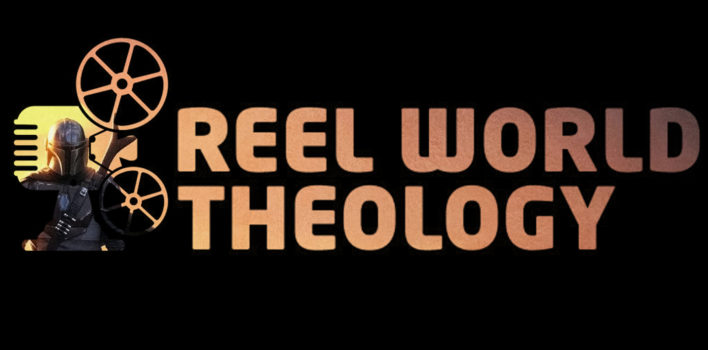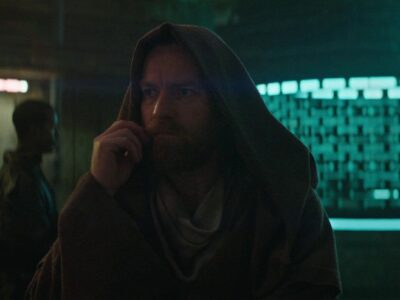The Mandalorian Chapter 3: Family Battle
Okay, so everybody’s calling him “Mando” now. No, no, I’m not bitter, Greef Carga. I just want the record to show that I called him that way back in Chapter 1.
And honestly, if this is the sort of story we’re going to be getting out of The Mandalorian, I’m happy for them to steal my ideas (and if Jon Favreau happens to be reading this: Mando and Lando. Just saying). Chapter 3 gave us a heist from raid to rescue that featured sublime, well-paced, well-blocked action; it gave us heart and thoughtfulness and character development; it gave us some more Mandalorian world building and a new catchphrase to go up alongside “I Have Spoken;” and it gave us a title that has sent Christian Star Wars fans into a flurry of speculation. Also, more Baby Yoda and more Ludwig Göransson music (it could’ve used more Kuiil, though).
Is it everything we’ve ever wanted? Honestly, I think this might be redefining what Star Wars fans want. This is the best of the Expanded Universe, brought out of its dark shadows and given a fresh coat of beskar; whether you just wanted a ninety-three part miniseries on the Michael A. Stackpole X-Wing series or you desperately want everyone else to shut up about Grand Admiral Thrawn already, almost all Star Wars fans are loving The Mandalorian.
Incidentally, you’re looking at spoilers for Chapters 1-3 of The Mandalorian in this piece. If you haven’t seen them yet, what are you waiting for? Thanksgiving?
An Armored Family
In the first piece for this series, I made the case that Mando’s Mandalorian “Covert” was a refugee nation of sorts; a people group which needed to be bound together, like the People of God in the Biblical Old Testament.
This episode shifts that analogy somewhat; while they are still a tiny nation trying to survive, they’re also a family which adopted Mando as a foundling. We get all the usual family function and dysfunction: a longsuffering mother, a bully older brother, a fight between each other, and a jetpack rescue despite blown cover.
Maybe you’re encountering this during the current holiday season, or maybe that’s why you avoid holidays with your family (though if your family is doing jetpack rescues, why are you avoiding them? They need your help and that sounds awesome!). Maybe you’ve found or built your own family out of friends or partners or children. But even if your family doesn’t know the pain of being “both hunter and prey,” we’ve all known the pain of a world shattered by brokenness and evil; and we’re all we’ve got to get through it. Yet still we fight.
It’s our honor and our nature.
This is the Way
The phrase that launched a thousand memes in this episode is the Mandalorian tribe’s mantra, “This is the Way.” A liturgy of honor, this phrase isn’t well explained; but we can extrapolate.
First, the “Way” probably includes courage and dedication. The Mandalorian leader (Armorer? Priestess? Duchess? Mand’alor?) invokes the mantra after speaking of these qualities in Mando.
“When one chooses to walk the Way of the Mandalore, you are both hunter and prey. How can one be a coward if one chooses this way of life? Have you ever removed your helmet?”
“No.”
“Has it ever been removed by others?”
“Never.”
“This is the Way.”
—The Mandalorian leader and Mando
Second, the “Way” almost certainly means helping a member of your family, regardless of risk to yourself. The “big brother Mandalorian” Paz Vizla repeats the mantra when the tribe comes to save Mando from the Bounty Hunters’ Guild.
“Get out of here! We’ll hold them off!”
“You’re going to have to relocate the covert.”
“This is the Way.”
—Vizla and Mando
We don’t know much more about the “Way” than that yet. But the repeated line reminds me a lot of a plaque hung in the entryway of a home: something like those (sometimes chintzy) posters or plaques that say “In this house, we laugh, we forgive, we help one another…” They’re a way of expressing the core values that make the family distinct; maybe they’re strictly adhered to or maybe they’re just aspirational, but they reflect what really mattered.
Interestingly, we find another connection to the ancient Israelite people here. They would (and many Jews still do) put upon their doors, as a reminder of who they were, a case called a “mezuzah” which contained passages from the book of Deuteronomy:
Hear, O Israel: The Lord our God, the Lord is one. You shall love the Lord your God with all your heart and with all your soul and with all your might.
—Deuteronomy 9:4-5, ESV
Maybe this is an aspirational value for some of us, or maybe it sounds a little old-fashioned or incomplete. But the Bible reinforces this throughout; Jesus even calls this the “greatest commandment,” reminding us that the second is to love our neighbor as ourselves. In the family of faith that God has created of those who follow Him, there is no greater mantra or important creed of honor than to love God with our heart, soul, and might. In this house, we love the Lord our God, and from that love flows a love for others.
This is the Way.
• • •
Looking for more reviews of The Mandalorian? You can subscribe to our friends over at Home One Radio, or check back here next week for our look at “Chapter Four.”








